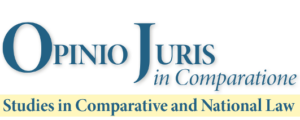Regulating risks in pharmaceutical law: the need of an optimal interplay between products safety and products liability
Authors: Marco Rizzi
ABSTRACT
The aim of this paper is to call for the need of a theoretical model of pharmaceutical products safety in which the two systems of regulation and liability operate complementarily. The question is why two legal tools that are meant to achieve and protect the same goal (protection of consumers) are shaped in a way that hinders, instead of promoting, a positive interaction between the two. At present we have two separate sets of rules that operate independently: pre-marketing regulation with post-marketing surveillance duties, and ex-post facto liability, linked to the pre-marketing available knowledge. Since the key issue in both regulatory and liability assessments related to pharmaceuticals is the one of “relevant knowledge”, we claim that the legal framework should be shaped in the way that better promotes the availability of such a knowledge. In the effort of identifying a global paradigm of pharmaceutical safety (coherent with the global nature of the relevant market), a comparison of the legal frameworks in force in the two major “regional” drug markets (US and EU) is not only necessary, but valuable in order to identify the shortcomings of “local” solutions, and their inconsistencies vis à vis the transnational nature of the issue. The fact that the two scenarios present substantial institutional differences does not hinder such a value. If we consider that the market is globalized at both the stage of production and at the one of distribution, the construction of a global governance of pharmaceutical safety has to confront with legal and institutional diversities.
Keywords:

